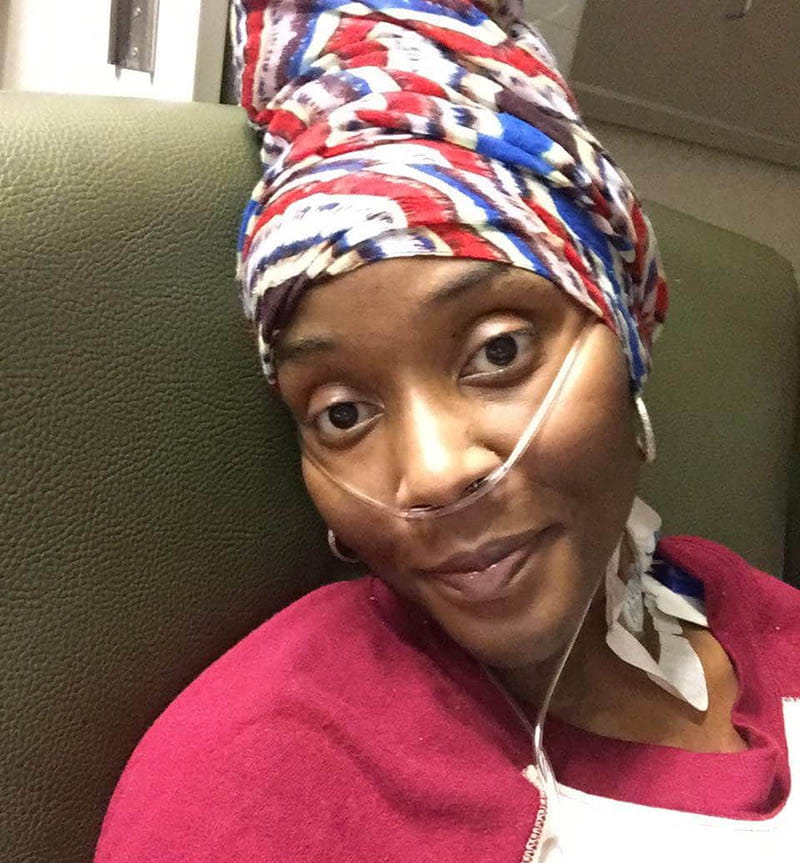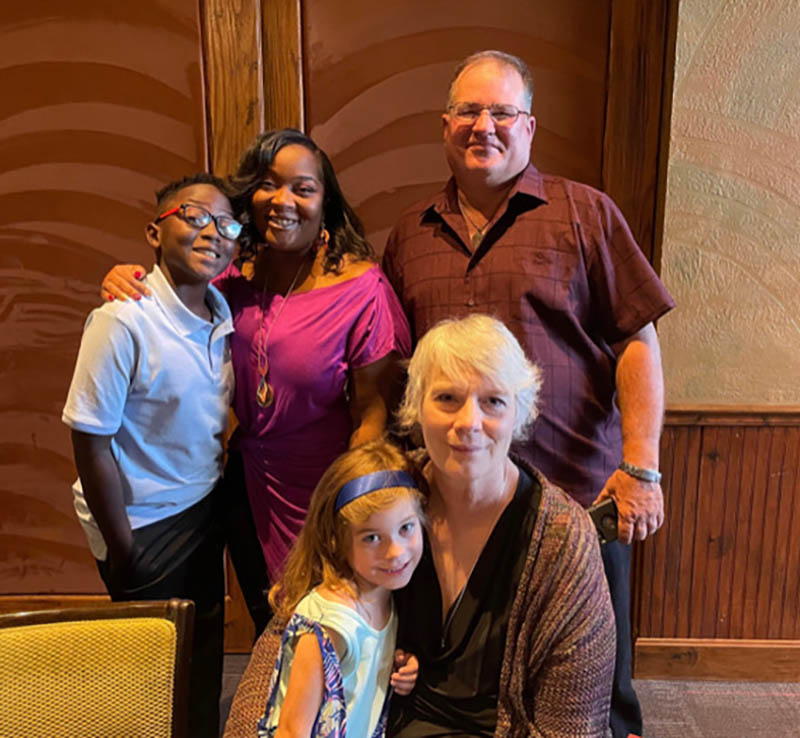
Although Danecia Williams was 24 and healthy, her first pregnancy took a toll on her body. Her blood pressure spiked, straining her heart and other organs. heart failure
Doctors diagnosed her with preeclampsia and closely monitored her and the baby for months. They braced for what might happen when she went into labor. Indeed, her heart rate skyrocketed while the baby's plummeted, prompting an emergency cesarean section.
Williams greeted her new baby boy, Isaiah, as her blood pressure continued to climb, according to the. She stayed in the hospital for a week until her numbers stabilized.
She'd been home in Wichita, Kansas, for only two days when she started gasping for air. Her legs swelled. Williams' mother rushed her to the doctor, who said an X-ray showed heart failure.
Williams thought heart failure was a condition for old people, not for a new mom in her 20s.
"Am I about to die?" she thought. "I have this brand new baby. Who is going to care for him?"
Williams went right to the hospital. An echocardiogram showed her heart was functioning at 25% capacity. Doctors determined she had peripartum cardiomyopathy, a rare condition in which the heart muscle weakens during or right after pregnancy.
RELATED: Can You Tell If Your Own Heart Is Failing?
About her condition
They told her that people with similar heart function typically have around five years to live. She received an implantable cardioverter defibrillator.
Williams felt depressed and anxious. She couldn't stop worrying. To take her mind off her diagnosis, she became active. She spent time with her son, went out with friends every weekend and became active with her church.
Six years later, she was increasingly tired. It was hard to climb the stairs to her bedroom. She felt sick to her stomach.
A few days after Christmas, Williams was in the kitchen getting cantaloupe for Isaiah. Across the room, her brother watched her drop a piece on the floor, then pick it up and put it in her mouth.
"He knew immediately something was wrong, something wasn't connecting, because that's not normal behavior for me," Williams shares.
She could hear but couldn't respond. Her brother called 911. At the hospital, a scan revealed she'd had a stroke. While in the ER, she had another.

Her speech and movement weren't permanently impacted. But her heart was.
With her heart functioning at 10%-15% now, doctors put her on the waiting list for a heart transplant. A year later, her heart function fell further.
"Doctors told my mom, 'We need to do something or she's going to die,'" Williams adds. "The hardest part for me was accepting that I might have left this earth and my child."
Doctors implanted a device that performed the workload for the left side of her heart. The left ventricular assist device enabled her to attend a mother-son dance at Isaiah's elementary school.
"It really improved quality of life," she shares.
RELATED: 5 Heart Failure Symptoms Doctors Commonly Miss
A new heart
A year later, she was getting ready for bed one night when the phone rang. It was the transplant hospital in Oklahoma City. "They said, 'We have a heart we've accepted on your behalf. Are you interested?"
She had to be there within three hours.
Williams' sister would care for Isaiah. Before going to his aunt's home, Isaiah slipped a framed photo of himself into his mom's bag and said, "You're going to need this."
The 12-hour surgery was a success. Eight years after her health issues began, and after two years on the transplant list, Williams had a new, strong heart.
She was told her donor was a teenage girl who'd been in a car accident. Williams figured out her identity: 17-year-old Rylee Malone, a high school senior from Texas.

Williams wrote the family to thank them and to tell them that because of their daughter, she would be able to watch Isaiah grow up.
The family wrote back. They continued to exchange letters, then spoke on the phone. In September, on the four-year anniversary of Williams' transplant, they met in Texas.
Bart Malone listened to his daughter's heartbeat in Williams' chest. As he did, Williams said, "It's strong, huh?"
"It's strong, it's so strong," Malone said through tears.
The meeting felt like closure for Williams. For Malone, it was comforting.
"My wife has a terminal illness, so hearing from Danecia when we did was one of God's smallest blessings," he shares. "She is a beautiful young lady and has a beautiful story. We feel like our daughter's heart is in a good place."
What is peripartum cardiomyopathy?
According to the American Heart Association, "peripartum cardiomyopathy (PPCM), also known as postpartum cardiomyopathy, is an uncommon form of heart failure that happens during the last month of pregnancy or up to five months after giving birth. Cardiomyopathy literally means heart muscle disease."
PPCM is rare in the United States, Canada, and Europe. It affects about 1,000 to 1,300 in the U.S. each year.
Symptoms of the PPCM include:
- Fatigue
- Feeling of heart racing or skipping beats (palpitations)
- Increased nighttime urination (nocturia)
- Shortness of breath with activity and when lying flat
- Swelling of the ankles
- Swollen neck veins
- Low blood pressure, or it may drop when standing up
If you notice any of these symptoms, contact your doctor immediately.
In order to maintain a healthy heart and minimize your risk of developing PPCM, you should avoid cigarettes and alcohol, eat a well-balanced diet and get regular exercise. Women who develop PPCM are also at risk of developing the condition again in future pregnancies, so if you plan on having more children; it is important to consult with your doctors to weigh your risks and come up with a game plan for a safe and healthy pregnancy.
By American Heart Association News









